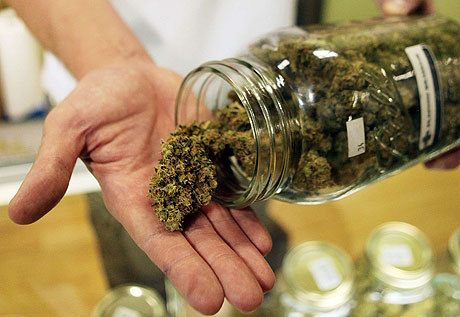
Studies showing medical marijuana helps patients with seizures is becoming the argument to legalize medical marijuana in the state of Georgia. Three-month-old Kason Jiles suffers from Othara Syndrome. Jiles has 20 second seizures 10 to 25 times in a day. Medical marijuana helps lessen the seizures and so Jiles’s father as well as other families of children who suffer from seizures are working with Georgia lawmakers to push a bill that would legalize medical marijuana in the Peach State. Representative Allen Peake (R-Macon), is one of those representatives hoping to help those who suffer from ailments that medical marijuana would help treat. Peake had this to say after meeting with Kason’s father, “If it was my child or grandchild and this was the only remedy that helps with a medical condition, I’d be pushing as hard as I can.”(WTAC-6)
James Bell, director for Georgia’s Campaign for Access, Reform, and Education (C.A.R.E.), is convinced Georgia is ready to consider medical marijuana reform. Georgia C.A.R.E. wrote in a seven page report called, “A Guide to Enacting Medical Marijuana in Georgia“. The report gives an outline of the necessary steps to reduce criminal penalties and allow doctors to prescribe medical marijuana for therapeutic reasons. “We believe the people of Georgia will support our efforts to allow patients with serious medical conditions to use marijuana under doctor’s supervision. We’re ready to take our plan to state lawmakers”, Bell said. Georgia C.A.R.E. seeks legislative sponsorship while educating the public, the media, and the government of the benefits of medical marijuana in Georgia.
From the report, a few points highlighted by C.A.R.E. on ” Four key principles for effective Georgia medical marijuana laws”
1.Define what is a legitimate medical use of marijuana by requiring a person who seeks legal protection to (a) have a medical condition that is sufficiently serious or debilitating, and (b) have the approval of his or her medical practitioner;
2. Avoid provisions that would require physicians or government employees to violate federal law in order for patients to legally use medical marijuana;
3. Provide at least one of the following means of obtaining marijuana, preferably all three: (a) permit patients to cultivate their own marijuana; (b) permit primary caregivers to cultivate marijuana on behalf of patients; and (c) authorize nongovernmental organizations to cultivate and distribute marijuana to patients and their primary caregivers.
4. Implement a series of sensible restrictions, such as prohibiting patients and providers from possessing large quantities of marijuana, prohibiting driving while under the influence of marijuana, and so forth.



